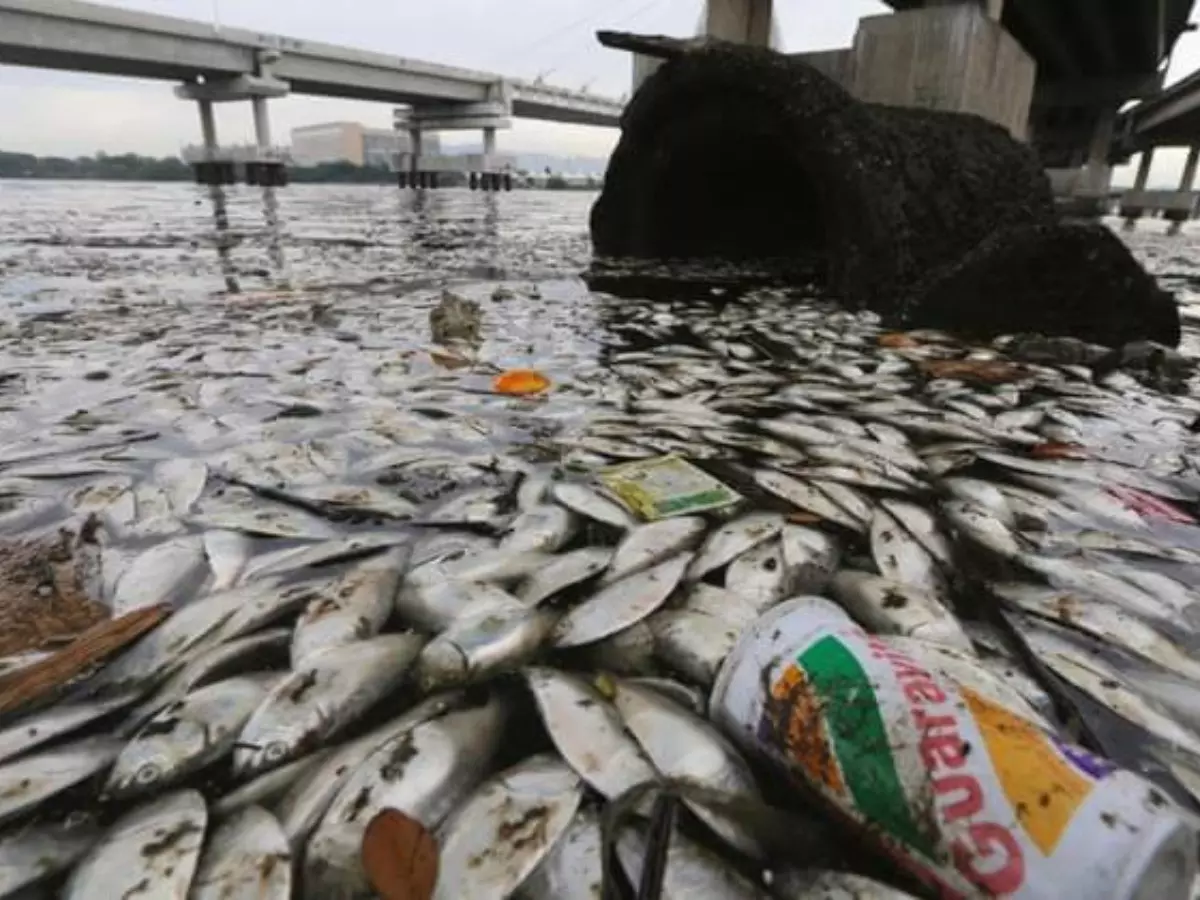Thousands Of Dead Fish Pile Up At US Beach, Unbearable Stench Forces Locals To Stay Indoors
Uncountable dead fish washed up on a beach in Staten Island New York causing a stench that has troubled local residents. Fish meat contains a chemical trimethylamine oxide which when exposed to air after death causes an unbearable stench. There has been no official statement as of now about the dead fish or what is causing the deaths.

Uncountable dead fish washed up on a beach in Staten Island, New York, causing a stench that has troubled local residents. Many residents have chosen to stay indoors to save themselves from the smell of rotting fish.
 Representational Image/ The Guardian
Representational Image/ The Guardian
As per reports, fish have begun to rot, causing some local residents to stay indoors to avoid the stench.
¡®Horrific smell¡¯
John Mastellone, a local told Staten Island Live, ¡°We saw like white things - it was low tide. Today, the smell is horrific. You can't even go outside. And I don't know if it¡¯s dangerous to breathe it in or not, but we¡¯re not going outside.¡±
 Representational Image/ NDTV
Representational Image/ NDTV
He further raised concern, claiming ¡°something could be very major¡±.
Fish meat contains chemical
According to Newsweek, fish meat contains a chemical trimethylamine oxide, which when exposed to air after death, causes an unbearable stench.
 Representational Image/ Euronews
Representational Image/ Euronews
There has been no official statement as of now about the dead fish or what is causing the deaths.
But this is not the first time that dead fishes have washed up along the shores of Staten Island.
Similar incidents were reported in past too
In April 2021, a similar incident was reported in the Great Kills Park area, reported Staten Island Live. It was investigated by the New Jersey Department of Environmental Preservation (DEP), which said that the deaths were caused by ¡°undetermined species of bacteria¡±.
 Representational Image/ iStock
Representational Image/ iStock
The fish belonged to the menhaden species, also known as bunker fish. They are primarily used for bait and non-commercial purposes. In 2017 too, Lemon Creek and Wolfe¡¯s Pond Park saw a large number of bunker fish on their shores.
Menhaden are both an important part of the food chain and are commercially harvested for their use in supplement products, according to the National Oceanic and Atmospheric Administration purposes.
For more on news and current affairs from around the world please visit Indiatimes News.
